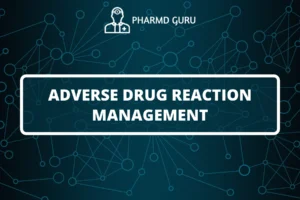Patient counseling is a crucial aspect of healthcare that empowers patients with the knowledge and understanding they need to actively participate in their own care. It involves effective communication between healthcare professionals, particularly clinical pharmacists, and patients to ensure safe and optimal medication use. In this article, we will explore the importance of patient counseling, its key elements, and the role of clinical pharmacists in providing comprehensive patient counseling.
SCROLL DOWN TO THE BOTTOM OF THE PAGE FOR ACTUAL NOTES
TABLE OF CONTENTS:
- Introduction
- What is Patient Counseling?
- Importance of Patient Counseling
- Key Elements of Patient Counseling
- The Role of Clinical Pharmacists
- Effective Communication Techniques
- Empowering Patients for Self-Care
- Adherence and Medication Safety
- Collaboration with Healthcare Team
1. Introduction
Patient counseling is a collaborative process that involves healthcare professionals providing relevant and understandable information to patients regarding their healthcare, particularly medication therapy. It promotes patient engagement, adherence to treatment plans, and overall health and well-being.
2. What is Patient Counseling?
Patient counseling entails a one-on-one conversation between a healthcare professional, such as a clinical pharmacist, and a patient or caregiver. It aims to educate and inform patients about their medical condition, treatment options, potential side effects, medication administration, and lifestyle modifications.
3. Importance of Patient Counseling
Patient counseling is essential for several reasons:
- Empowering patients: It helps patients become active participants in their healthcare decisions, fostering a sense of empowerment and autonomy.
- Enhancing treatment understanding: Patient counseling ensures that patients understand their medical condition, treatment goals, and how medications contribute to their overall health.
- Promoting medication adherence: Counseling provides patients with the necessary information and strategies to adhere to their medication regimen, improving treatment outcomes.
- Minimizing medication errors: Effective counseling reduces the risk of medication errors, such as incorrect dosing or drug interactions, by ensuring patients are well-informed.
4. Key Elements of Patient Counseling
Patient counseling involves several key elements to ensure comprehensive and effective communication:
- Clear and understandable language: Healthcare professionals should use simple, non-technical terms and avoid jargon to facilitate patient understanding.
- Active listening: Listening attentively to patients’ concerns, questions, and preferences fosters trust and engagement.
- Tailored information: Counseling should be personalized to the patient’s specific needs, taking into account their medical history, lifestyle, and preferences.
- Visual aids and written materials: Utilizing visual aids, diagrams, and written materials can enhance understanding and serve as references for patients outside of the counseling session.
5. The Role of Clinical Pharmacists
Clinical pharmacists play a vital role in patient counseling, leveraging their expertise in medication management and therapeutic knowledge. They are well-equipped to provide comprehensive information about medications, including their purpose, dosage instructions, potential side effects, and interactions. Clinical pharmacists also collaborate with other healthcare providers to ensure the safe and effective use of medications.
6. Effective Communication Techniques
Effective communication is key in patient counseling. Clinical pharmacists employ various techniques to ensure clear and meaningful interactions, including:
- Active engagement: Encouraging patients to ask questions, share concerns, and actively participate in the conversation.
- Empathy and understanding: Demonstrating empathy and understanding towards patients’ experiences and challenges.
- Non-verbal cues: Paying attention to non-verbal cues, such as body language and facial expressions, to gauge patients’ comprehension and engagement.
- Confirming understanding: Seeking confirmation from patients that they understand the information provided and encouraging them to repeat or summarize key points.
7. Empowering Patients for Self-Care
Patient counseling empowers patients to take an active role in their own care. By providing information about their medical condition, treatment options, and self-care strategies, clinical pharmacists enable patients to make informed decisions and engage in behaviors that promote their overall health and well-being.
8. Adherence and Medication Safety
Patient counseling significantly contributes to medication adherence and safety. Clinical pharmacists educate patients about the importance of adhering to prescribed medication regimens, potential side effects to watch for, and strategies to manage them. This knowledge reduces the likelihood of medication errors and adverse events, enhancing patient safety.
9. Collaboration with Healthcare Team
Patient counseling involves collaboration between clinical pharmacists and other healthcare providers. By actively communicating with physicians, nurses, and other members of the healthcare team, clinical pharmacists ensure a coordinated approach to patient care. They share relevant information, discuss treatment plans, and address any concerns or potential issues, ultimately improving patient outcomes.
ACTUAL NOTES




